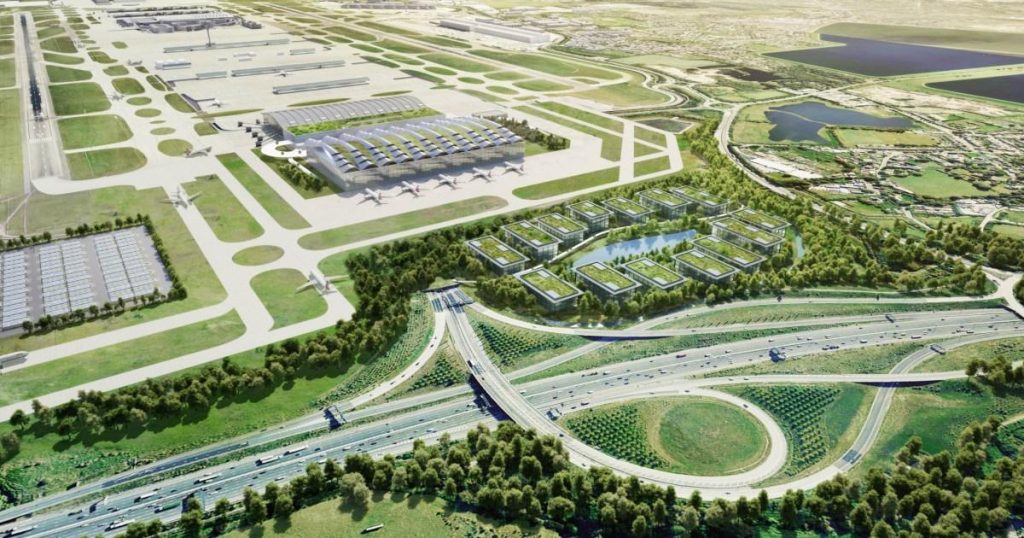Paragraph 1: Heathrow Expansion and Economic Growth
Chancellor Rachel Reeves has announced the government’s endorsement of a third runway at Heathrow Airport, a move aimed at stimulating the UK economy. This decision, despite opposition from environmental groups and some Labour MPs, is projected to significantly increase the airport’s capacity. Reeves emphasized the economic benefits, estimating a 0.43% boost to British GDP by 2050, with over half of the gains expected outside London and the South East. She positioned the expansion as a key step in making Britain "the world’s best-connected place to do business," highlighting the importance of growth as the government’s primary mission.
Paragraph 2: Addressing Environmental Concerns and Balancing Growth
The Heathrow expansion faces criticism due to the projected increase in carbon emissions. However, the government maintains that these emissions can be offset to align with the UK’s climate change commitments. This balancing act between economic growth and environmental responsibility is a key challenge for the government. London Mayor Sadiq Khan has voiced his opposition to the expansion, citing the ongoing climate crisis. This creates a potential point of conflict between national and local government priorities.
Paragraph 3: The OxCam Arc: Fostering Innovation and Regional Development
Beyond Heathrow, Reeves also unveiled plans for a "growth corridor" between Oxford and Cambridge, dubbed the "OxCam Arc." This initiative will support the development of new communities along the 66-mile stretch, enhanced by improved transport links connecting the two university cities with Milton Keynes. A new East Coast mainline station in Tempsford is a key element of this plan, designed to improve connectivity and accessibility. The Chancellor positioned the OxCam Arc as having the potential to become "Europe’s Silicon Valley," citing industry projections of up to £78 billion in added economic value.
Paragraph 4: Infrastructure Development and Red Tape Reduction
Reeves underscored the importance of infrastructure development as a driver of economic growth, announcing government support for the redevelopment of Manchester United’s Old Trafford stadium into a 100,000-seater venue. She emphasized the need to cut "stifling" red tape and regulations that hinder infrastructure projects across the country. This commitment to streamlining regulations suggests a proactive approach to facilitating investment and construction. The Old Trafford redevelopment serves as a high-profile example of the government’s commitment to supporting large-scale infrastructure projects.
Paragraph 5: The Chancellor’s Vision for Growth
Reeves declared growth as the government’s "number one mission," framing it as a fight against stagnation and a commitment to improving the lives of working people. She stressed that low growth is not inevitable and that the government is prepared to make the necessary decisions to change the country’s trajectory. This rhetoric highlights the Chancellor’s determination to prioritize economic expansion and positions the government as actively working to overcome challenges. The emphasis on "working people" suggests a focus on inclusive growth that benefits a broad spectrum of society.
Paragraph 6: Balancing Economic Priorities with Social Concerns
While the focus of Reeves’s announcements was on economic growth and infrastructure development, other pressing issues continue to demand attention. Reports highlight a substantial funding shortfall for women’s refuges, raising concerns about their survival. Furthermore, questions have been raised about the government’s understanding of the vulnerability of its IT systems to cyberattacks. Finally, proposed cuts to benefits have drawn criticism for potentially pushing disabled people into poverty. These issues underscore the complex challenges facing the government, requiring a balancing act between economic priorities and social welfare concerns.


